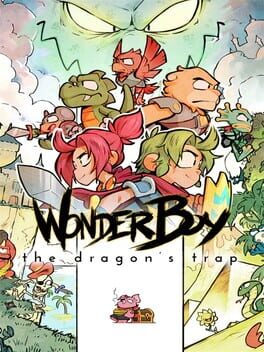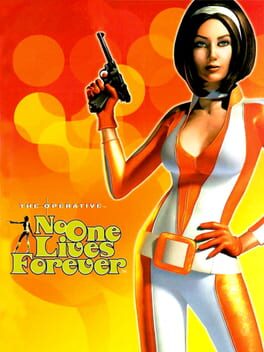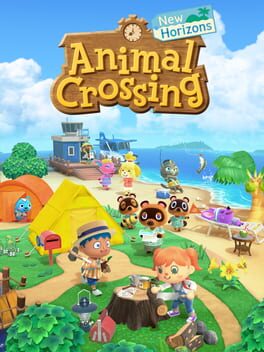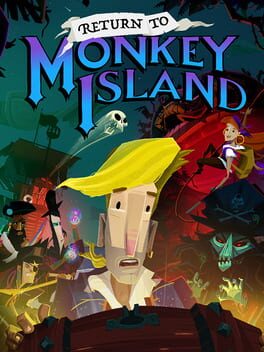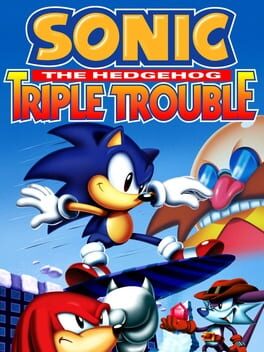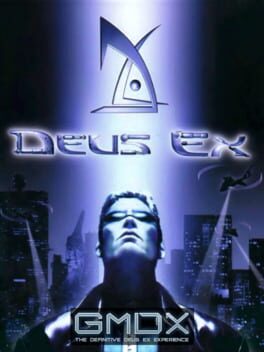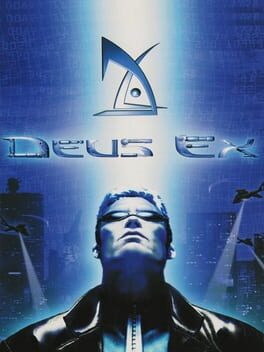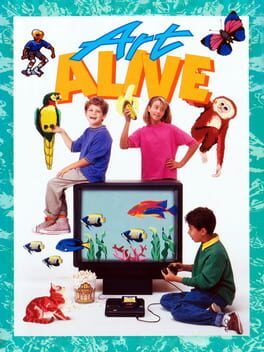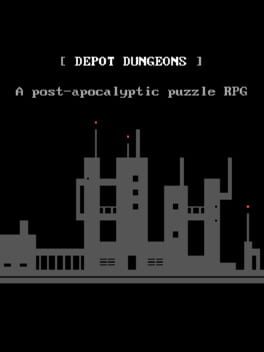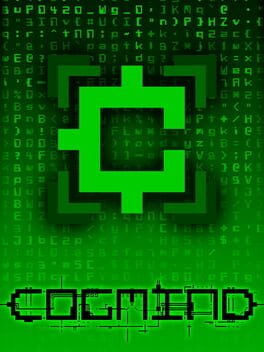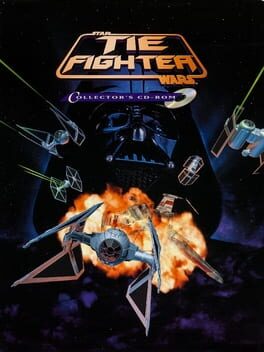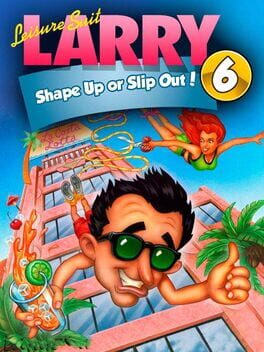PerrySimm
This right there -- this is how you do a remake of a classic game. You get people who really, passionately love the original and know it by heart, all the way down to the code base (which, in this case, was painstakingly reverse engineered using custom tools). And you try to provide an experience that is as faithful to the original as possible, while making smart and subtle changes to bring it up to date.
Do you simply want a polished-up version of the Master System game, running in widescreen and 60 FPS? Or would you rather have a lavish re-imagining with gorgeously animated cartoon visuals, a studio-recorded soundtrack and a more user-friendly interface? How about anything in between? It's up to you.
Many remakes of oldschool titles that offer the option to switch to the original graphics seem hellbent on making them look at ugly as possible, probably in order to make the new art look better in comparison (I'm looking at you, Monkey Island Special Editions). That's not the case here: Even if you decide to turn off the rather good-looking CRT shaders, you get a clean, evenly scaled look, akin to a modern "pixel art" indie game. Not to speak of the new hand-drawn visuals, which manage to look amazing and animate beautifully without sacrificing the responsiveness of the controls.
In fact, the game plays even better than the original, thanks to the doubled framerate and some slight tweaking and rebalancing. They even threw in three different difficulty modes, as well as the option to play as "Wonder Girl", if you're so inclined -- just because.
All in all, this is notably a labor of love by people who know their shit, and a great way to experience this 8-bit era evergreen.
Do you simply want a polished-up version of the Master System game, running in widescreen and 60 FPS? Or would you rather have a lavish re-imagining with gorgeously animated cartoon visuals, a studio-recorded soundtrack and a more user-friendly interface? How about anything in between? It's up to you.
Many remakes of oldschool titles that offer the option to switch to the original graphics seem hellbent on making them look at ugly as possible, probably in order to make the new art look better in comparison (I'm looking at you, Monkey Island Special Editions). That's not the case here: Even if you decide to turn off the rather good-looking CRT shaders, you get a clean, evenly scaled look, akin to a modern "pixel art" indie game. Not to speak of the new hand-drawn visuals, which manage to look amazing and animate beautifully without sacrificing the responsiveness of the controls.
In fact, the game plays even better than the original, thanks to the doubled framerate and some slight tweaking and rebalancing. They even threw in three different difficulty modes, as well as the option to play as "Wonder Girl", if you're so inclined -- just because.
All in all, this is notably a labor of love by people who know their shit, and a great way to experience this 8-bit era evergreen.
When it comes to FPS games from the era around Y2K, everyone of course remembers Half-Life, but as ground-breaking as that game was in its design and presentation, you have to admit that the actual content was pretty dull, even for the time: An interdimensional portal opens, and then you fight your way through the corridors of giant research complex, shooting aliens and soldiers. Video games, eh?
In No One Lives Forever, you sneak into a stylish sixties nightclub, battle enemies while free-falling out of a plane, try to avoid the ticket inspector on a train ride, fight an obese German opera singer, explore a sunken ship in diving gear, inflitrate a giant office building and pick off enemies with a silent crossbow, drive a snow mobile through the alps, stand up against your sexist superiors in well-written interactive dialog sequences, visit a tropical island and infiltrate a secret base hidden inside an active volcano, pose as a journalist to interview a narcissistic big game hunter, and fly into space to disintegrate evil scientists with a laser gun -- all in one game, within a few hours. Now that's entertainment.
In No One Lives Forever, you sneak into a stylish sixties nightclub, battle enemies while free-falling out of a plane, try to avoid the ticket inspector on a train ride, fight an obese German opera singer, explore a sunken ship in diving gear, inflitrate a giant office building and pick off enemies with a silent crossbow, drive a snow mobile through the alps, stand up against your sexist superiors in well-written interactive dialog sequences, visit a tropical island and infiltrate a secret base hidden inside an active volcano, pose as a journalist to interview a narcissistic big game hunter, and fly into space to disintegrate evil scientists with a laser gun -- all in one game, within a few hours. Now that's entertainment.
It seemed like fate when Animal Crossing: New Horizons released just in time for the start of the COVID lockdowns, promising a much needed opportunity to hang out with virtual animal friends in a relaxing island atmosphere.
It worked for me -- for a few days. Then, suddenly, I turned it off and realized I had no desire to ever return, which was odd to me, considering Animal Crossing is a game that runs on a real-time clock and calendar, and is supposed to be played in short sessions over the course of years. Also, I had poured almost a hundred hours into its predecessor New Leaf on the 3DS, not missing a single Christmas (sorry, "Toy Day") since 2013.
So, what happened? To be honest, the culprit was this well-made parody video: https://www.youtube.com/watch?v=auTi3stuL5M (CAUTION: Watching this might ruin New Horizons for you forever.)
It was the moment when the painful truth became clear to me: I kind of hate New Horizons. Watching this chopped-together, fan-made satirical video promising all those easy to implement little things that would make the game just a little less tedious and condenscending, knowing that Nintendo would never, in a million years, be arsed to do any of those things, made me finally say to myself, “You know what, Animal Crossing? Fuck you. Fuck your disingenuous cutesy aesthetics, fuck your arbritary restrictions, fuck your skinner box OCD bait.” I have not touched the game since.
Even if the gameplay was less cumbersome, the world of New Horizons feels utterly sterile, boring and lifeless. There are tons of decorative objects and pieces of furniture in the game, but you can do practically nothing with them but place them in the world and look at them. For a “life sim”, there are virtually no social dynamics, and no opportunities for emergent storytelling. Villagers wander around randomly, spouting the same few phrases, and NPCs like Tom Nook or Isabelle serve as nothing more than glorified, painfully slow menu screens. It works better in New Leaf on the 3DS, because that game's scope is limited enough that it lines up nicely with its mechanics and interface. But in New Horizons, every bigger event or introduced feature is just yet another bar for you to fill or new set of bullshit items to collect.
Soon after, I discovered The Sims 4 and never looked back. Yeah, that game is a piece of garbage (play The Sims 3 for an actually good life sim), but it has the courtesy to let me use mods and custom content to get rid of all its bullshit, dig into its well-designed creation tools, and turn it into whatever I want. No bars to fill, just unlimited creative freedom. Just what I needed after hours of fumbling around with materials and storage space in New Horizons. And hey, if I ever want to be overwhelmed with ungodly amounts of tedious busywork, I can always go back to real life.
It worked for me -- for a few days. Then, suddenly, I turned it off and realized I had no desire to ever return, which was odd to me, considering Animal Crossing is a game that runs on a real-time clock and calendar, and is supposed to be played in short sessions over the course of years. Also, I had poured almost a hundred hours into its predecessor New Leaf on the 3DS, not missing a single Christmas (sorry, "Toy Day") since 2013.
So, what happened? To be honest, the culprit was this well-made parody video: https://www.youtube.com/watch?v=auTi3stuL5M (CAUTION: Watching this might ruin New Horizons for you forever.)
It was the moment when the painful truth became clear to me: I kind of hate New Horizons. Watching this chopped-together, fan-made satirical video promising all those easy to implement little things that would make the game just a little less tedious and condenscending, knowing that Nintendo would never, in a million years, be arsed to do any of those things, made me finally say to myself, “You know what, Animal Crossing? Fuck you. Fuck your disingenuous cutesy aesthetics, fuck your arbritary restrictions, fuck your skinner box OCD bait.” I have not touched the game since.
Even if the gameplay was less cumbersome, the world of New Horizons feels utterly sterile, boring and lifeless. There are tons of decorative objects and pieces of furniture in the game, but you can do practically nothing with them but place them in the world and look at them. For a “life sim”, there are virtually no social dynamics, and no opportunities for emergent storytelling. Villagers wander around randomly, spouting the same few phrases, and NPCs like Tom Nook or Isabelle serve as nothing more than glorified, painfully slow menu screens. It works better in New Leaf on the 3DS, because that game's scope is limited enough that it lines up nicely with its mechanics and interface. But in New Horizons, every bigger event or introduced feature is just yet another bar for you to fill or new set of bullshit items to collect.
Soon after, I discovered The Sims 4 and never looked back. Yeah, that game is a piece of garbage (play The Sims 3 for an actually good life sim), but it has the courtesy to let me use mods and custom content to get rid of all its bullshit, dig into its well-designed creation tools, and turn it into whatever I want. No bars to fill, just unlimited creative freedom. Just what I needed after hours of fumbling around with materials and storage space in New Horizons. And hey, if I ever want to be overwhelmed with ungodly amounts of tedious busywork, I can always go back to real life.
I have the cover art of Monkey Island 2: LeChuck’s Revenge framed on a wall, so you better believe I shat my pants when its long-awaited “true” sequel was announced in the form of a cheeky April Fools joke. Original creator Ron Gilbert, undoubtedly the greatest adventure game designer who ever lived, returning to the series to finish his version of the story is one of those video game miracles you anticipate for decades, but never really expect to happen until it does.
After playing it, I was left with mixed feelings. It’s a nice, well-designed game, noticeably made by people who know what they’re doing, and I enjoyed playing it. This is, indeed, easily the best Monkey Island since LeChuck's Revenge.
But as someone who always loved Gilbert’s unique brand of storytelling and controversial meta-endings, and especially considering how Gilbert spent decades going “Man, if someone would just finally let me tell this story” and hyping up a “secret” that was supposedly never revealed before, I’m surprised that, ultimately, I was left with the impression that what he wanted to tell us was that his heart actually isn’t really in it any more.
Maybe I'll understand someday, when I'm older. But I hope I won't.
After playing it, I was left with mixed feelings. It’s a nice, well-designed game, noticeably made by people who know what they’re doing, and I enjoyed playing it. This is, indeed, easily the best Monkey Island since LeChuck's Revenge.
But as someone who always loved Gilbert’s unique brand of storytelling and controversial meta-endings, and especially considering how Gilbert spent decades going “Man, if someone would just finally let me tell this story” and hyping up a “secret” that was supposedly never revealed before, I’m surprised that, ultimately, I was left with the impression that what he wanted to tell us was that his heart actually isn’t really in it any more.
Maybe I'll understand someday, when I'm older. But I hope I won't.
I love the high-concept-ness of this remake, emulating a “lost” 1995 Mega Drive sequel to 1994’s Sonic & Knuckles, right down to sticking to the console’s audiovisual limitations and retconning the story to work as a continuation of the Mega Drive timeline. In reality, the whole thing was made using Game Maker Studio 2, but it could have fooled me into thinking I was playing an actual unreleased Mega Drive game, especially when combined with a good ReShade CRT shader.
Unfortunately, one rather big flaw hurts the illusion: Input lag -- not only from the shaders, but from the game itself. I tried my best to keep up the illusion of being a kid again by rationalizing that this is simply a very late Mega Drive title that pushes the hardware to its limits, but at the end of the day the controls just feel not quite right.
Everything else is expertly crafted and totally on-point though, from the presentation to the level design. The remake even improves on some aspects of the Mega Drive games, for example by making Tails an actually useful companion in single player mode -- something not even Sonic Mania managed to do.
Unfortunately, one rather big flaw hurts the illusion: Input lag -- not only from the shaders, but from the game itself. I tried my best to keep up the illusion of being a kid again by rationalizing that this is simply a very late Mega Drive title that pushes the hardware to its limits, but at the end of the day the controls just feel not quite right.
Everything else is expertly crafted and totally on-point though, from the presentation to the level design. The remake even improves on some aspects of the Mega Drive games, for example by making Tails an actually useful companion in single player mode -- something not even Sonic Mania managed to do.
2009
This is a hot candidate for “most woefully underappreciated game in existence”. The Nameless Mod is a fan-made total conversion mod for Deus Ex from 2009, but really more of a full-fledged sequel, and, dare I say, easily a better one than all of the (still pretty good) commercial attempts.
It’s a rich, deep and cleverly crafted cyberpunk super spy simulator that not only rivals the original, but even delivers on some of its broken promises, like an honest-to-god branching storyline. Whereas Deus Ex had this feature cut and in turn tells pretty much the same basic tale every time, The Nameless Mod is much more flexible when it comes to forging your own personal narrative.
It took me until my latest playthrough to fully realize this, when I decided to playfully mess around in the game world, trying to pull at its seams a little. Instead of longingly staring at the best sword in the game without being able to afford it, I just hacked the security system, stole the sword and killed the shopkeeper with it. And instead of following the main objective of investigating a kidnapping, I gleefully told my friends and colleagues that I don’t give a shit and that they all suck, and went to work for the big evil corporation with the very clearly insane CEO instead. Whom I betrayed as well in the end, naturally.
So why have so many people in its supposed target audience of oldschool Deus Ex fans given up on The Nameless Mod after the first hour, or didn’t even bother to play? Surprisingly, this is the rare case when we actually have a pretty well-documented answer: It’s the story. You can see it all over internet comment sections: Just learning the premise is enough to seemingly turn off loads of potential players. Now what’s this controversial story premise?
Man, is it hard to explain. Which may be the first problem already. Basically, The Nameless Mod asks the superbly strange question “What if the Deus Ex online fan culture of the mid-2000s was a Deus Ex game itself?” The stuck-in-perpetual-night-time rainy near-future city the game takes place in is supposed to be a Matrix/Tron/Metaverse-like representation of the PlanetDeusEx forums, which actually existed in the 2000s, when this mod was made. Almost all of the characters you meet in the game are based on real users and moderators of the site. Some even voice-acted themselves. And the further you get in the story, the more you realize that it’s actually about the GameSpy network consolidating and commercializing internet video game fan communities, told in the form of a Deus Ex-like cyberpunk conspiracy thriller.
Now, mid-2000s internet forum culture and humor is a bit, as the kids say, “cringe” from today’s perspective, and The Nameless Mod wears its fan culture roots proudly on its sleeves instead of trying to imitate a commercial product, with all the freedoms and idiosyncrasies that brings. There is a side mission where you are tasked to get rid of a gang of “n00bz”, a fan fiction shop with characters pretentiously overanalyzing Deus Ex’s background lore, and two opposing cults, one worshipping llamas, the other worshipping goats. Sometimes it’s difficult to distinguish between worldbuilding and community in-jokes, and the last thing people want is to be reminded of the time when they made their first account somewhere and posted a “pirates vs. ninjas” poll, I get that. But honestly, I think the fact that The Nameless Mod depicts a once real online community, obsessed with the game it itself is based on, is kind of genius. And I hope the more distance we gain to this time period, the more we can appreciate this game as a unique postmodern artifact, a time capsule from a lost culture.
One last tip: If you’ve tried the mod in the past and dismissed it, give it another look. During the last few years, the game has been receiving regular updates again. The lead level designer has returned to the project with ten additional years of professional experience under is belt, completely remaking all of the maps, and it’s a night-and-day difference. A version of the mod also was integrated into the otherwise rather dreadful Deus Ex: Revision as a Steam Workshop release, which makes downloading and playing it easier and more convenient than ever before.
It’s a rich, deep and cleverly crafted cyberpunk super spy simulator that not only rivals the original, but even delivers on some of its broken promises, like an honest-to-god branching storyline. Whereas Deus Ex had this feature cut and in turn tells pretty much the same basic tale every time, The Nameless Mod is much more flexible when it comes to forging your own personal narrative.
It took me until my latest playthrough to fully realize this, when I decided to playfully mess around in the game world, trying to pull at its seams a little. Instead of longingly staring at the best sword in the game without being able to afford it, I just hacked the security system, stole the sword and killed the shopkeeper with it. And instead of following the main objective of investigating a kidnapping, I gleefully told my friends and colleagues that I don’t give a shit and that they all suck, and went to work for the big evil corporation with the very clearly insane CEO instead. Whom I betrayed as well in the end, naturally.
So why have so many people in its supposed target audience of oldschool Deus Ex fans given up on The Nameless Mod after the first hour, or didn’t even bother to play? Surprisingly, this is the rare case when we actually have a pretty well-documented answer: It’s the story. You can see it all over internet comment sections: Just learning the premise is enough to seemingly turn off loads of potential players. Now what’s this controversial story premise?
Man, is it hard to explain. Which may be the first problem already. Basically, The Nameless Mod asks the superbly strange question “What if the Deus Ex online fan culture of the mid-2000s was a Deus Ex game itself?” The stuck-in-perpetual-night-time rainy near-future city the game takes place in is supposed to be a Matrix/Tron/Metaverse-like representation of the PlanetDeusEx forums, which actually existed in the 2000s, when this mod was made. Almost all of the characters you meet in the game are based on real users and moderators of the site. Some even voice-acted themselves. And the further you get in the story, the more you realize that it’s actually about the GameSpy network consolidating and commercializing internet video game fan communities, told in the form of a Deus Ex-like cyberpunk conspiracy thriller.
Now, mid-2000s internet forum culture and humor is a bit, as the kids say, “cringe” from today’s perspective, and The Nameless Mod wears its fan culture roots proudly on its sleeves instead of trying to imitate a commercial product, with all the freedoms and idiosyncrasies that brings. There is a side mission where you are tasked to get rid of a gang of “n00bz”, a fan fiction shop with characters pretentiously overanalyzing Deus Ex’s background lore, and two opposing cults, one worshipping llamas, the other worshipping goats. Sometimes it’s difficult to distinguish between worldbuilding and community in-jokes, and the last thing people want is to be reminded of the time when they made their first account somewhere and posted a “pirates vs. ninjas” poll, I get that. But honestly, I think the fact that The Nameless Mod depicts a once real online community, obsessed with the game it itself is based on, is kind of genius. And I hope the more distance we gain to this time period, the more we can appreciate this game as a unique postmodern artifact, a time capsule from a lost culture.
One last tip: If you’ve tried the mod in the past and dismissed it, give it another look. During the last few years, the game has been receiving regular updates again. The lead level designer has returned to the project with ten additional years of professional experience under is belt, completely remaking all of the maps, and it’s a night-and-day difference. A version of the mod also was integrated into the otherwise rather dreadful Deus Ex: Revision as a Steam Workshop release, which makes downloading and playing it easier and more convenient than ever before.
2013
I’ll start with committing sacrilege: Even tough Deus Ex has remarkably few flaws for a game of its complexity, some slight ones do exist. The environments look a bit sparse; the weapons feel like toys; the limited AI can be easily exploited; and some skills, augs and weapons are clearly more useful than others. When you’ve played through the game countless times like I have, you get curious about whether there’s, you know, a mod for that.
Whereas the wider-known Deus Ex overhaul, Revision, saw the need to fix things that really don’t need fixing, like the level design (and went about it with all the subtlety and grace of a Trump family member), the developer of the more conservative GMDX (Give Me Deus Ex) tried to imagine what the game would be like if it had received an additional layer of polish before release.
Practically every aspect of the game was tweaked, but in smart and thoughtful ways, respecting the vision of the original designers. Combat especially feels much more like a viable way to play now thanks to dramatically improved AI and gunplay; skills and augmentations have been carefully rebalanced; bugs and engine quirks have been fixed; there are new ways to interact with the world, as well as various quality-of-life improvements to the interface; even the visuals and level design have been refined in ways that you probably won’t even notice if you haven’t played the game in a few years.
There are a few edge cases that may take things to far for certain people, like giving the player the ability to mantle onto ledges, adding a stamina bar, or the introduction of a whole new perk system. Personally speaking, I've been playing through the game with GMDX twice by now, and even though I may not agree with every little change, the experience of playing a deeper, more refined, more immersive version of Deus Ex has been amazing, making me engage even more with all of the game’s different systems.
The combination of improved movement, physics, combat and gunplay really is a game changer, because it just makes the act of playing the game feel so much better. Other things I love are, for example, how the weapon upgrade system has been turned from an afterthought into a fully fleshed-out mechanic, and how the addition of a power throw not only opens up new ways of playing, but even makes the often repeated act of breaking open supply crates into something that’s fun.
Whereas the wider-known Deus Ex overhaul, Revision, saw the need to fix things that really don’t need fixing, like the level design (and went about it with all the subtlety and grace of a Trump family member), the developer of the more conservative GMDX (Give Me Deus Ex) tried to imagine what the game would be like if it had received an additional layer of polish before release.
Practically every aspect of the game was tweaked, but in smart and thoughtful ways, respecting the vision of the original designers. Combat especially feels much more like a viable way to play now thanks to dramatically improved AI and gunplay; skills and augmentations have been carefully rebalanced; bugs and engine quirks have been fixed; there are new ways to interact with the world, as well as various quality-of-life improvements to the interface; even the visuals and level design have been refined in ways that you probably won’t even notice if you haven’t played the game in a few years.
There are a few edge cases that may take things to far for certain people, like giving the player the ability to mantle onto ledges, adding a stamina bar, or the introduction of a whole new perk system. Personally speaking, I've been playing through the game with GMDX twice by now, and even though I may not agree with every little change, the experience of playing a deeper, more refined, more immersive version of Deus Ex has been amazing, making me engage even more with all of the game’s different systems.
The combination of improved movement, physics, combat and gunplay really is a game changer, because it just makes the act of playing the game feel so much better. Other things I love are, for example, how the weapon upgrade system has been turned from an afterthought into a fully fleshed-out mechanic, and how the addition of a power throw not only opens up new ways of playing, but even makes the often repeated act of breaking open supply crates into something that’s fun.
2000
I miss the days when insanely over-ambitious maximalism was seen as a valid game design ethos. When thinking of the things you could do with a computer was still exciting. When a creator's natural response to "Your idea is too big" was "Shut up, you boring twat", as it should be.
Imagine it's the 90s, your name is Warren Spector, and you have an idea for the greatest game ever. It's a first-person-shooter, a stealth game, an RPG, an adventure game, all in one, and it's also a globetrotting dystopian sci-fi-cyberpunk-spy-thriller that tackles political and philosophical themes and has huge levels with highly interactive environments that allow the player to do whatever he wants. And then your buddy John Romero, who just got insanely rich from making DOOM, gives you an office, a dev team, tons of money and infinite creative freedom, says "Go get 'em tiger", and fucks off to throw coke-filled parties instead of working on Daikatana.
When I got the demo to Deus Ex from a magazine cover CD and played its first level over and over again, discovering new details, secrets or possible approaches each time, I remember thinking: "There is no way they can keep this up for a whole game." Spoiler: They could.
I love Deus Ex because I love hanging out in its world, exploring every nook and cranny, sneaking around, breaking into places, rummaging through drawers, hacking into computers, talking to people, listening to their conversations, reading emails and newspapers and bulletin boards, and above all, trying out different ways to get past an obstacle, and then reloading and trying a different one, just because. I'm hard-pressed to think of another title whose minute-to-minute gameplay (stealth, exploration, creative problem-solving, big and small decision-making) is just so damn enjoyable to me. Maybe because it drops you into a world that's similar to our own and makes you feel as if your actions really make a difference. In a way, it's the ultimate modern power fantasy.
Imagine it's the 90s, your name is Warren Spector, and you have an idea for the greatest game ever. It's a first-person-shooter, a stealth game, an RPG, an adventure game, all in one, and it's also a globetrotting dystopian sci-fi-cyberpunk-spy-thriller that tackles political and philosophical themes and has huge levels with highly interactive environments that allow the player to do whatever he wants. And then your buddy John Romero, who just got insanely rich from making DOOM, gives you an office, a dev team, tons of money and infinite creative freedom, says "Go get 'em tiger", and fucks off to throw coke-filled parties instead of working on Daikatana.
When I got the demo to Deus Ex from a magazine cover CD and played its first level over and over again, discovering new details, secrets or possible approaches each time, I remember thinking: "There is no way they can keep this up for a whole game." Spoiler: They could.
I love Deus Ex because I love hanging out in its world, exploring every nook and cranny, sneaking around, breaking into places, rummaging through drawers, hacking into computers, talking to people, listening to their conversations, reading emails and newspapers and bulletin boards, and above all, trying out different ways to get past an obstacle, and then reloading and trying a different one, just because. I'm hard-pressed to think of another title whose minute-to-minute gameplay (stealth, exploration, creative problem-solving, big and small decision-making) is just so damn enjoyable to me. Maybe because it drops you into a world that's similar to our own and makes you feel as if your actions really make a difference. In a way, it's the ultimate modern power fantasy.
2017
If you want to feel really, really good about yourself while sipping vanilla soy latte in an overpriced coffee shop, this is the game for you.
Yes, the idea is great, and the text messaging format is well used. Too bad the writing -- the central aspect of a game like this, after all -- is so corny, cliched and self-satisfied. If you can stomach the Netflix-tier snarky banter of the protagonists for longer than 30 minutes, you are stronger than me.
They are supposed to be a husband-and-wife couple from Syria, but sound more like siblings or BFFs from San Francisco that occasionally play in a band together. The spunky girlboss wife travels alone, while the husband stays at home -- you know, the classic refugee tale.
In a game that's so much about verisimilitude, and about such a serious subject matter, stuff like this is just hard to overlook. Which is a shame, as the concept had a lot of potential.
Yes, the idea is great, and the text messaging format is well used. Too bad the writing -- the central aspect of a game like this, after all -- is so corny, cliched and self-satisfied. If you can stomach the Netflix-tier snarky banter of the protagonists for longer than 30 minutes, you are stronger than me.
They are supposed to be a husband-and-wife couple from Syria, but sound more like siblings or BFFs from San Francisco that occasionally play in a band together. The spunky girlboss wife travels alone, while the husband stays at home -- you know, the classic refugee tale.
In a game that's so much about verisimilitude, and about such a serious subject matter, stuff like this is just hard to overlook. Which is a shame, as the concept had a lot of potential.
1991
As a child, my parents were pretty strict about the times they let me play video games. Frequently, the only game I was allowed to play was Art Alive, because I guess it wasn't really a game. So I just sat there, looking at the Sonic cartridges resting on the shelf, "playing" Art Alive. I drew mazes with dots in them and used the eraser tool to hover up the dots, emulating Pac-Man. That, my friends, is desperation.
Today, I use the game's box to store my weed. A late, silent rebellion.
Today, I use the game's box to store my weed. A late, silent rebellion.
2015
The Dark Souls of puzzle ga-- slaps himself
Depot Dungeons is a work of genius and the definition of a "hidden gem". Made in 2014/15 in a DOS-based game creation system from the early 90s (though you can play it on many platforms and even with one click in your browser), this devilish, intricate puzzle game with RPG elements has ridiculous amounts of love, care and expert craftmanship put into it.
Now, normally, "puzzle game with RPG elements" evokes cheap Puzzle Quest clones -- toxicly addictive, disrespectful, exploitative mobile game free-to-play skinner box crap, where someone added flashing numbers and endless grinding to a match-3 game. Depot Dungeons does the exact opposite: It breaks down the RPG to its absolute core elements, with multi-layered puzzle challenges designed around it. Whether you have one hit point or two, which level you are, whether you have a weapon equipped, or decide to use an item, which class you are playing as at the moment -- all this can fundamentally change how you approach the chess-like predicaments Depot Dungeon throws at you. Often enough, you'll enter a room, say "That's literally impossible" out loud, then proceed to find multiple ways to solve it.
The game also has tons of optional content, special challenges and unlocks, an endless procedurally generated post-game dungeon, fun writing, and a nice little storyline. I for one love the glorious DOS text mode ASCII aesthetics as well (play it in 4:3 with the "CRT-wave" filter over it for extra authenticity), but if you don't, you can wait for the kickstarted sequel/remake Puzzle Depot that adopts a more common 16-bit pixel-art style.
Depot Dungeons is a work of genius and the definition of a "hidden gem". Made in 2014/15 in a DOS-based game creation system from the early 90s (though you can play it on many platforms and even with one click in your browser), this devilish, intricate puzzle game with RPG elements has ridiculous amounts of love, care and expert craftmanship put into it.
Now, normally, "puzzle game with RPG elements" evokes cheap Puzzle Quest clones -- toxicly addictive, disrespectful, exploitative mobile game free-to-play skinner box crap, where someone added flashing numbers and endless grinding to a match-3 game. Depot Dungeons does the exact opposite: It breaks down the RPG to its absolute core elements, with multi-layered puzzle challenges designed around it. Whether you have one hit point or two, which level you are, whether you have a weapon equipped, or decide to use an item, which class you are playing as at the moment -- all this can fundamentally change how you approach the chess-like predicaments Depot Dungeon throws at you. Often enough, you'll enter a room, say "That's literally impossible" out loud, then proceed to find multiple ways to solve it.
The game also has tons of optional content, special challenges and unlocks, an endless procedurally generated post-game dungeon, fun writing, and a nice little storyline. I for one love the glorious DOS text mode ASCII aesthetics as well (play it in 4:3 with the "CRT-wave" filter over it for extra authenticity), but if you don't, you can wait for the kickstarted sequel/remake Puzzle Depot that adopts a more common 16-bit pixel-art style.
2017
Cogmind is the best game I have ever played, and I've been playing games for over thirty years. It's a traditional roguelike with a sleek, modern interface that plays like an immersive sim on steroids, and it's a masterclass in game design. It boggles my mind how a game can have that many interesting interlocking systems while being so tightly, thoughtfully and elegantly constructed at the same time.
Don't let the words "Early Access" or "Beta" fool you. Cogmind is huge, deep, polished, practically bugfree, and balanced to near perfection. It should be called "Version 8 Deluxe" or something, but the game's sole creator is a mad but very organized genius who can't bring himself to make a version called 1.0, maybe because he has very high standards and an insane work ethic, or maybe because he just loves his game and its community to death and can't let go.
Anyway, bottom line, I think Cogmind is quite possibly the greatest computer game ever made, I love that we keep getting more of it, and I hope someday in my lifetime I get to play that open-ended space game the developer has teased doing next.
Don't let the words "Early Access" or "Beta" fool you. Cogmind is huge, deep, polished, practically bugfree, and balanced to near perfection. It should be called "Version 8 Deluxe" or something, but the game's sole creator is a mad but very organized genius who can't bring himself to make a version called 1.0, maybe because he has very high standards and an insane work ethic, or maybe because he just loves his game and its community to death and can't let go.
Anyway, bottom line, I think Cogmind is quite possibly the greatest computer game ever made, I love that we keep getting more of it, and I hope someday in my lifetime I get to play that open-ended space game the developer has teased doing next.
TIE Fighter is still the best and most interesting Star Wars game. One year prior, X-Wing had laid the groundwork by taking the approach from World War II flight sims like Secret Weapons of The Luftwaffe and applying it to Star Wars, so instead of a straightforward, character-driven action game like you would get today, the result was a kind of nerdy simulationist take on a universe that's usually a more "fun and forget"-type set-dressing affair in service of archetypical adventure stories.
TIE Fighter improved on almost every aspect of its predecessor, not only with its vastly superior mission design, which is still one of the greatest strengths of the game, but also when it comes to its story and scenario. Playing as a pilot for the Empire is a clever switch of perspectives that's handled refreshingly subtle. It's the "banality of evil/just another day at the office"-type mundanity that makes the worldbuilding work so well, and the moments when you are introduced to the mysterious Secret Order of the Emperor, or meet up with celebrities like Vader and Thrawn, all the more memorable.
TIE Fighter improved on almost every aspect of its predecessor, not only with its vastly superior mission design, which is still one of the greatest strengths of the game, but also when it comes to its story and scenario. Playing as a pilot for the Empire is a clever switch of perspectives that's handled refreshingly subtle. It's the "banality of evil/just another day at the office"-type mundanity that makes the worldbuilding work so well, and the moments when you are introduced to the mysterious Secret Order of the Emperor, or meet up with celebrities like Vader and Thrawn, all the more memorable.
2010
Ranking the Yakuza games has always been difficult for me, because they're just all so damn great. Most people will say that Zero is the best one, and I agree. But 4 has a special place in my heart -- it's the one I come back to again and again, for various reasons. It certainly helps that it's starting out so chill and noir, with Akiyama, my favorite character of the series, basically just walking the nightly streets of Kamurocho in the rain, taking care of business and stirring shit up. Sure, the story has some of the series' most tone-deaf and/or straight-out bizarre cringe moments, but for me that's part of the charm.
I love how the game expands and focuses on one city district specifically, all the different kinds of people it inhabits, all the secrets beneath (and above) its surface, and how no single person could discover them all. I also love how it does a thing that I wish more open-world (and Yakuza) games would do: keeping the main story short and briskly paced, while filling the side content with subplots that explore the characters' backgrounds and feel like a meaningful part of the narrative.
I love how the game expands and focuses on one city district specifically, all the different kinds of people it inhabits, all the secrets beneath (and above) its surface, and how no single person could discover them all. I also love how it does a thing that I wish more open-world (and Yakuza) games would do: keeping the main story short and briskly paced, while filling the side content with subplots that explore the characters' backgrounds and feel like a meaningful part of the narrative.
Leisure Suit Larry 6 is a guilty pleasure, a celebration of tastelessness. The ugly art (even "better" in the high-res SVGA version!), the constant barrage of dirty dad jokes and toilet humor, the cruelty and cynicism on display, the head-scratchingly poor decisions in parts of the puzzle design -- it all amounts to a game that I cringe at but also enjoy, mainly because it ignores the crazy plots and messy continuity of the previous titles and goes back to the laid-back hangout nature of the original, where nothing really matters and it's just fun to click on things.
